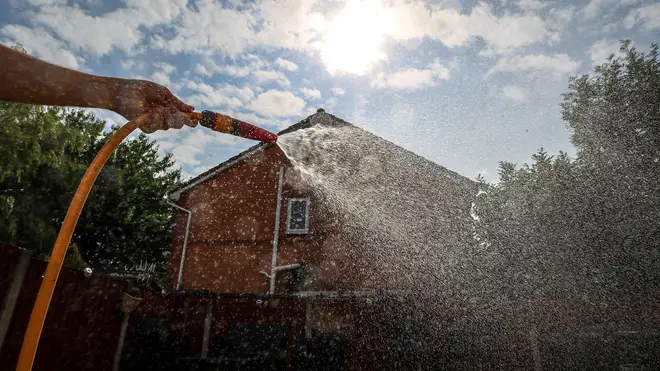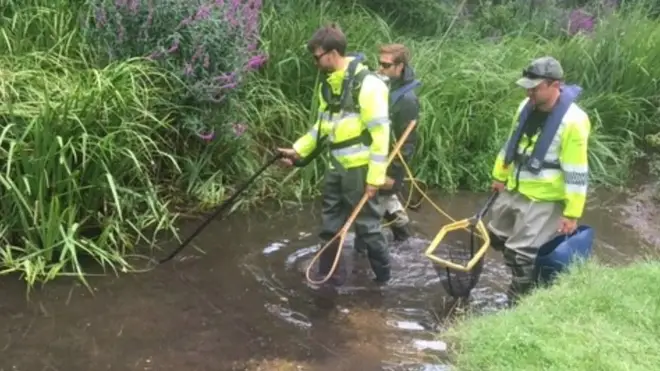
Dean Dunham 9pm - 10pm
2 October 2019, 21:17

Hosepipe bans could be brought into force in spring after areas of Hertfordshire and north London suffered an environmental drought.
Despite recent heavy downpours, the South East has received below-average rainfall over the past three years, according to the Environment Agency.
Jamie Thompson, the agency's water resources and major projects engagement specialist, said a lack of rainfall, combined with high water consumption and climate change, has left the two areas suffering from an "environmental drought".
That is when there is significant pressure on rivers and the life they support, but not yet on public water supplies.
He also said there was “no doubt” that the shortages were as a result of climate change.
It comes after Affinity Water, which supplies water to 3.6 million people across the South East, warned last week it might need to introduce a hosepipe ban in the spring.

Mr Thompson said: "Another dry winter will very likely require temporary use bans to be implemented next year.
"We will work with the water companies to do everything we can to plan and protect the environment should we not receive the level of rain we hope for this winter."
Mr Thompson said recent dry winters had left the South East region with only 50 per cent of its "winter recharge" - where chalk aquifers are topped-up with water - since 2016/17.
Water from those aquifers feeds into chalk streams and is the source of much of the water people use in their homes.
Mr Thompson said the South East has the highest water consumption in the country, with much of it taken from rivers and groundwater reservoirs.
He said while work continues to reduce demand, "we still have a long way to go".
"We have also worked with Affinity Water to reduce abstraction by 42 million litres per day since 2015, but we know this isn't enough," Mr Thompson said in a blog post.
"We have secured further reductions totalling of 33 million litres per day by 2025."
Mr Thompson said there is "significant stress" on the rivers and the life they support across counties including Norfolk, Essex, Hertfordshire and Buckinghamshire.
He added: "For the last four months we have been operating in incident mode for drought and have been making every effort to protect the environment as river flows have dropped.
"There is no doubt that what we are seeing is happening as a result of climate change."
Companies are now developing new supply options to import water in their regions to reduce reliance on local groundwater abstractions.
An Environment Agency spokeswoman said: "A lack of rain over the past three years, attributed to our changing climate, has put significant stress on our rivers and natural environment.
"As a result, parts of south-east England and East Anglia are suffering from environmental drought, indicating significant pressure on our rivers and the life they support, but not yet on public water supplies.
"We ask everyone to play their part and make extra efforts to conserve water over the coming months to support our rivers and wildlife."